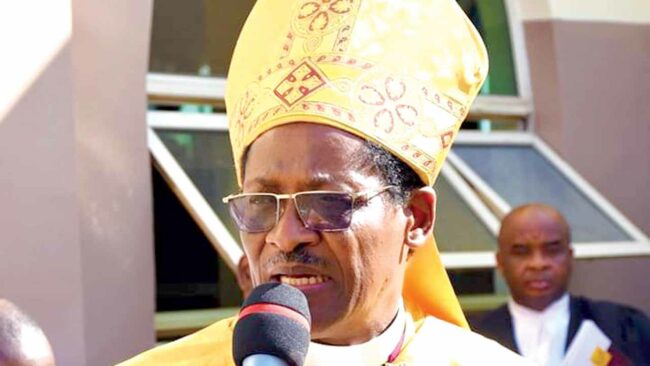The Archbishop Metropolitan and Primate of the Church of Nigeria, Anglican Communion, Most Rev. Henry Ndukuba, has called for an end to the siege of wickedness in Nigeria.
Addressing journalists on the state of the nation, the Anglican Primate cleric likened Nigeria’s current state to a nation under siege, facing security challenges, economic turmoil, and spiritual and socio-political crises.
He emphasised the need for divine intervention to address the spiritual, financial, economic, social, political, and moral challenges facing the nation.
Primate Ndukuba further explained that the siege upon Nigeria must come to an end, expressing hope for a restored and purposeful nation, adding that he was confident in God’s ability to heal and restore Nigeria.
“Nigeria is like a nation that is under siege, security-wise, we are dehumanised. When you look around and see the attacks in our villages and in communities, especially by different groups.
“And some of these groups may not have a base in Nigeria. They may be neighbouring countries or people from other countries coming into our nation to vandalise our people.
“But apart from that, there are also some elements within us who are aiding and abetting. And therefore the situation in which we live is like a siege, where you cannot travel freely, where you cannot be assured of what would happen the next minute, then we are under siege,” he said.
The cleric however called on Nigerians to trust in God’s promises and work towards a better future, adding that “there is hope for the nation.”
He also highlighted ongoing efforts by the Anglican Church to help the government in alleviating the suffering of the Church, which included healthcare initiatives and programmes such as combating drug addiction, and domestic violence, and empowering youth and communities.
Speaking on the upcoming synod of the diocese of Abuja starting May 9, Ndukuba emphasised its significance.
“It is worthy to note that we shall be holding our second session of the 12th Synod of the Diocese of Abuja. This year marks the 35th anniversary of the diocese, and it will be celebrated in November.”
The Primate highlighted the synod’s role in defining the Church of Nigeria Anglican Communion as “episcopally led, but synodically governed,” where delegates meet annually over three years, with each year constituting a session.
Drawing from Acts of the Apostles, chapter 15, he described the synod as a platform for prayer, discussion of church and national issues, decision-making, and accountability.
“And the idea of having a church synod is what we have taken from the scriptures, the meeting of God’s people to pray, discuss issues that concern the church and the nation.
“It is also a time to offer the bishop and the leadership of the diocese to account, to talk to the people, to present the account of their stewardship. It is also an opportunity for the diocese to take decisions as to what to do and what not to do.
“So, we will be meeting under the guidance of God, as the church met in acts of the apostles, chapter 15, and took decisions that helped the church in the spread of the gospel, in nurturing the members and in building up the people of God,” he added.
The Anglican Primate also urged the government at all levels to prioritise the minimum wage and put workers’ welfare first, noting the hardship Nigerians were currently facing.
